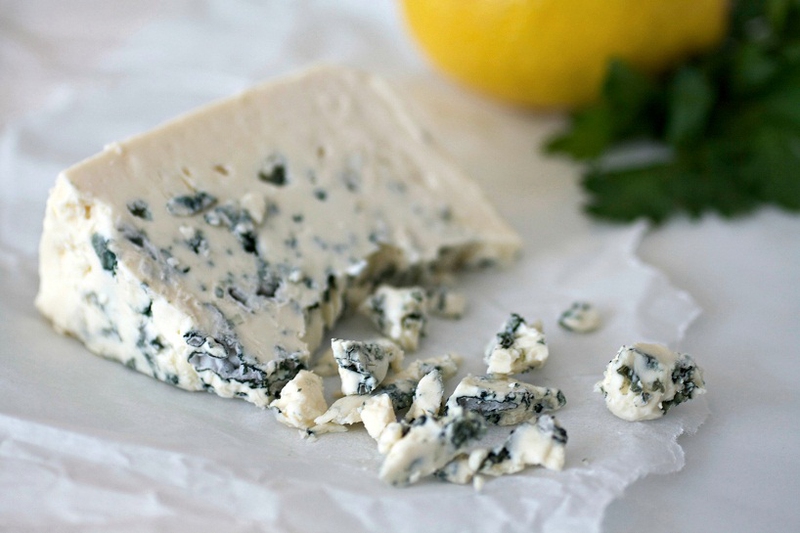Blue cheese is known for its pungent smell because it is a type of edible blue mold. It is common in the French diet and is also called Roquefort cheese. Some say blue cheese is the secret to why many French live longer lives than those in the rest of the world. Does blue cheese have some unknown health benefits or is it bad? This article will reveal the answers.

Is Blue Cheese Bad for You?
Can Be Good for the Circulatory System
Blue cheese can help lower cholesterol levels, prevent blood clotting and reduce inflammation of the arteries. People who consume blue cheeses on a regular basis tend to have a lower risk of cardiovascular disease.
Reduce Arthritis Pain
The anti-inflammatory properties in blue cheese can help ease some of the pain in those who suffer from arthritis pain. Not only does it fight against joint inflammation, it can also help reduce the risk of developing it.
Combat Against Osteoporosis
This common condition among women is a weakness in the bones that can result in various fractures and breaks from even the common mild falls or bumps. Because blue cheese contains 150 milligrams of calcium, it can be a great addition to promoting your bone health. This high source of calcium is good for the bones and can help prevent osteoporosis.
Improves Memory
There are a number of nutrients in blue cheese that can help improve memory. Brain cell functioning will be improved when you add blue cheese to your diet regularly. Give it a try!
Be Good for Healthier Bones and Teeth
Is blue cheese bad for you because it contains a high amount of phosphorus? No, phosphorus is a mineral that aids in keeping the bones and teeth in the body strong and healthy while also playing a vital part in various functions of the body.
Great for Those Who Are Lactose Intolerant
Those who have irritations for drinking regular milk may be able to get the milk protein from blue cheese.
Good for Your Teeth
As mentioned above, blue cheese can help keep teeth strong and because of a good amount of calcium, it also helps keep teeth strong. Blue cheese can also help prevent tooth decay and fight against plaque.
Improve the Immune System
Blue cheese provides the body with a number of vitamins and minerals which give an extra boost to the immune system. This boost in the immune system makes it easier to fight off and prevent a number of diseases and infections.
Prevents Cellulite
Blue cheese contains a number of agents and properties that help prevent fats from accumulating. If you are worried about cellulite, then you will want to include blue cheese into your diet.
Anti-Inflammatory Properties
Is blue cheese bad for you when you have inflammation? Don't worry; blue cheese can actually be beneficial. Include blue cheeses into your diet can help fight off a variety of inflammation issues.
However, there are a few drawbacks to eating blue cheese that you'll want to be aware of.
Calories and Fat. Blue cheese contains a high amount of calories and fat. With nearly 100 calories per ounce, it can account for 5% of your daily calorie intake if you are following a 2,000 calorie diet. While it may not seem like much, you have to consider you will be consuming much more than a one ounce serving at once. This can lead to consuming an excess amount of calories. There are also 8.2 grams of fat and 5.3 grams of saturated fat in each serving. This kind of fat has a negative effect on your cholesterol levels and can put your cardiovascular health at risk. This fat content from one serving of blue cheese can equal a quarter of the fat you should consume on a 2,000 calorie diet.
Sodium. While your body requires sodium to help it properly function, blue cheese contains a significant amount of sodium. Sodium plays a role in the nerve and heart functions, balances blood pressure and acts as an electrolyte. However, when too much sodium is consumed, there is a higher risk for kidney damage, cancer, and cardiovascular disease. Is blue cheese bad for you? When you consider that one serving of blue cheese can contain 325 milligrams of sodium which equals nearly 22% of the recommended amount for a day, it is something you have to be careful about over consuming.
View All Comments /Add Comment